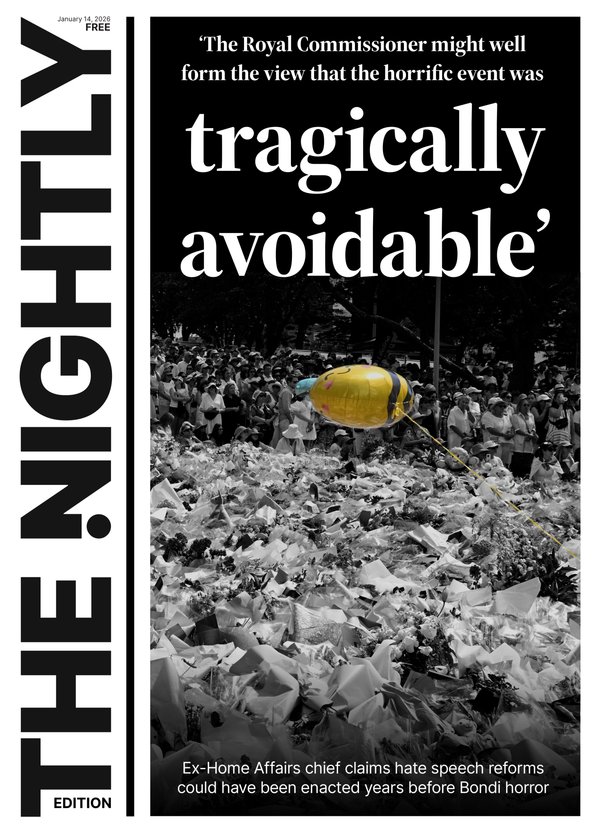Nick Bruining: How to find your perfect financial adviser? Here’s a step-by-step guide to weed out the lemons

It’s a common enough question sent to the Your Money team: can you recommend a good financial adviser?
And while we would love to provide answers to the hundreds of questions we receive, we simply can’t legally dish out personal financial advice without running the risk of spending the next five years in Casuarina Prison.
We can, however, talk about how to pick a good adviser. It’s a process, but well worth the effort.
Sign up to The Nightly's newsletters.
Get the first look at the digital newspaper, curated daily stories and breaking headlines delivered to your inbox.
By continuing you agree to our Terms and Privacy Policy.Hopefully, you might start with the name of a potential adviser offered by a close friend or colleague. That existing relationship should have been running for at least five years to provide a reasonable indication of whether the service that was promised has actually been delivered.
It also means there’s a good chance that the relationship has survived one of the many rocky financial periods we’ve experienced. A good adviser is there with you through the good and the bad.
If you don’t have an adviser’s name, start with the online “find a planner” service from the two main industry associations.
The Financial Advice Association Australia is by far the biggest with thousands of members listed under various locations and postcodes. Independent financial advisers grouped by State can be found on the Certified Independent Financial Advisers Association website.
From there, you start by visiting the excellent moneysmart.gov.au website and carefully read the section on “getting the right financial advice”.
With the name of a few planners to check out, it’s time to do a background check on them using the Australian Securities and Investments Commission’s financial advisers register on the moneysmart.gov.au site.
Search the name of your prospective adviser. You’ll be amazed at the names that don’t appear. Some very prominent so-called “experts” are not actually licensed to give financial advice.
Look to see who the Australian Financial Services Licensee is. Click the link and find out more about the parent firm. You can find out who actually controls the AFSL and how many other advisers it has.
Next, you’ll see who the adviser has worked with over the past few years. This can be telling, too. If they’ve been flitting here and there every couple of years, that could be a sign they either move on — or are “moved on”. It also begs the question: What happens to the clients they were supposed to be looking after at each of the firms they’ve left?
The bottom of the page will provide details of their education.
It’s easy to be an education snob about these things but the fact is, providing proper comprehensive financial advice requires you to have solid working knowledge in all things financial. Until about three years ago, an adviser could knock off an online financial planning course over a weekend and then “goon to” advise you on what to do with your life’s savings.
Thankfully, all new entrants must now have a university qualification and complete a supervised year before they’re let loose.
The problem is some of the older advisers out there are still in the system.
There are thousands of people dishing out financial advice who have little or no formal tertiary education. Ideally, the education section will reveal your prospective adviser has a university degree in business, commerce, finance or economics and a qualification in overall financial services or financial planning — perhaps a diploma, masters or graduate certificate.
Be wary of people who may have a unit here or there or a list of specialisations without a base qualification as well.
One final point.
There are some genuinely excellent advisers out there who don’t have formal qualifications. Often, their backgrounds include life in the public service with many years of experience tucked under their belts. They may have excellent working knowledge in areas such as tax, aged care, health and Centrelink. But you’ll probably have their name because a friend or colleague recommended them based on their own experience.
Select three likely candidates and interview them. Call and let them know what you’re up to: “I’m simply chatting with three advisers briefly and will decide who I am comfortable with.”.
Armed with your moneysmart questions, you’ll soon get a feel for each of them. Trust your instincts and beware of smart-alecs who try to blind you with their brilliance or ignore one of you if you are a couple.
This is likely to be a long-term arrangement for everyone and the most important components in the relationship will be trust and respect.
Happy hunting!
Nick Bruining is an independent financial adviser and a member of the Certified Independent Financial Advisers Association

